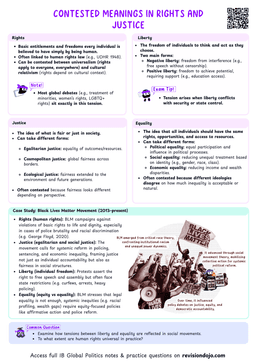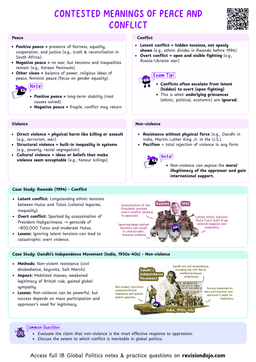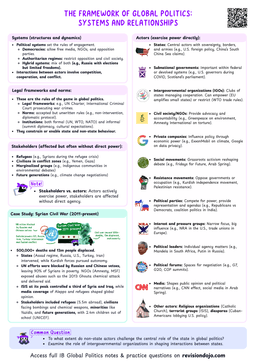Understanding Bias in Global Politics Theories
Bias
Bias refers to a systematic preference or inclination that shapes how theories are constructed and applied.
- Bias can arise from:
- Cultural perspectives: Western theories may prioritize individualism, while non-Western perspectives might emphasize community or state sovereignty.
- Historical context: Theories developed during the Cold War, like realism, often focus on power and security.
- Ideological assumptions: Liberalism assumes the inherent value of cooperation and institutions, which may not apply universally.
- Bias is not inherently negative.
- It reflects the perspectives and assumptions that shape a theory, but it can limit its applicability or lead to oversimplifications.
Common Biases in Global Politics Theories
- Eurocentrism: Many theories are rooted in Western experiences, overlooking non-Western perspectives and historical contexts.
- State-centrism: Realism and liberalism often prioritize states as the primary actors, neglecting the role of non-state actors like NGOs or multinational corporations.
- Rational actor assumption: Theories like realism assume states act rationally to maximize power or security, ignoring cultural, emotional, or irrational factors.
- The rational actor assumption in realism may overlook how identity politics or historical grievances influence state behavior, as seen in conflicts like the Israeli-Palestinian dispute.
Limitations of Global Politics Theories
- Simplification of Complex Realities: Theories often reduce complex phenomena to core principles, which can lead to oversimplification.
- Contextual Limitations: Theories may not account for unique cultural, historical, or regional factors.
- Evolving Global Dynamics: Theories developed in specific historical contexts may struggle to address contemporary issues like cyber warfare or climate change.
- Normative Bias: Some theories, like liberalism, may reflect normative assumptions about how the world should be, rather than how it is.
- While realism emphasizes state sovereignty and power, it may overlook the growing influence of international institutions and norms in shaping global politics.
Analyzing Bias and Limitations: A Step-by-Step Approach
- Identify Core Assumptions: What are the foundational beliefs of the theory? (e.g., realism's focus on anarchy and power)
- Examine Historical and Cultural Context: When and where was the theory developed? How does this influence its perspective?
- Evaluate Applicability: Does the theory account for non-state actors, transnational issues, or cultural diversity?
- Consider Alternative Perspectives: How might other theories or frameworks address the same issue differently?
- When analyzing a theory, always ask:
- What assumptions are being made?
- Whose perspectives are included or excluded?
- This critical approach helps uncover bias and limitations.
The Syrian Civil War
- Realist Perspective: Focuses on state interests and power dynamics, such as Russia and the US supporting opposing sides.
- Limitation: Overlooks the role of non-state actors like ISIS or the impact of identity politics and sectarianism.
- Liberal Perspective: Emphasizes the failure of international institutions like the UN to prevent the conflict.
- Limitation: May underestimate the influence of state sovereignty and geopolitical rivalries.
- Identify three common biases in global politics theories.
- Explain how these biases can limit the applicability of a theory in specific contexts.
- Reflect on a recent global event.
- How might different theories interpret this event, and what biases or limitations might they reveal?


